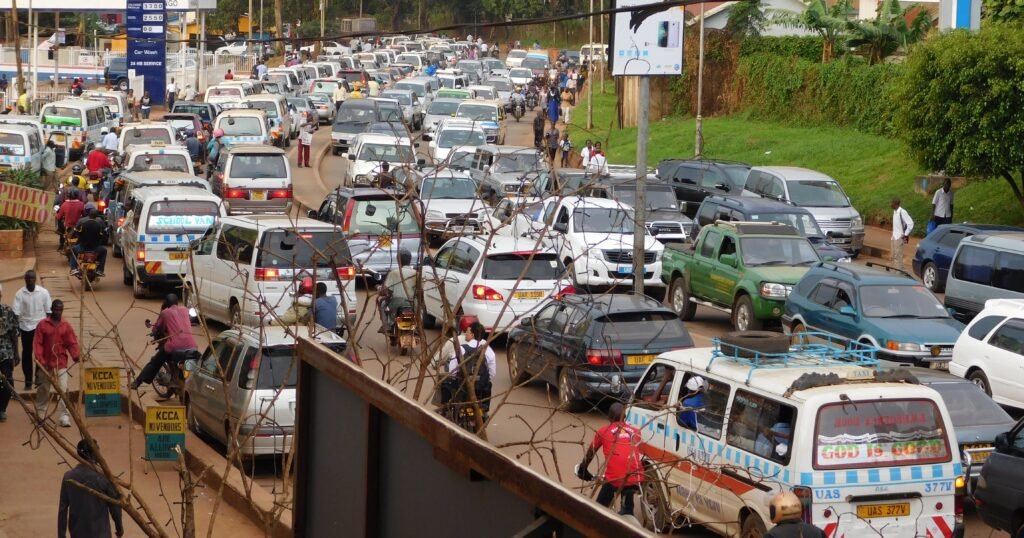Kampala, amongst other Ugandan cities, has long been a source of income for many. The land of hustle and money, and truth to point, countless youth have left their rural homes to carve out a living…city life has been the beating heart of economic activity. Rural-urban migration has been the trend for decades, and for the most part, it has worked. One could get a job, start a small business, make ends meet, and even have enough to send a few shillings back home to their Muzei and Mukadde. The phrase “Yagenze Kampala kola” is common in rural areas, just to show how the city has long been seen as a land of opportunity.
2024 Census Reveals Mixed Trends in Internal Migration as Uganda’s Cities Thrive While Rural Regions Face Population Decline
However, recently, the tides have turned. Many city dwellers now dream of owning land in a peaceful rural setting, far away from the chaos of urban life. Life in the city is no longer as rewarding as it once was, and many are choosing to pack up and leave.
The Logic Behind urban-to-rural Migration and How to Survive It
Of course, there are several reasons for this, political uncertainties have created a sense of instability, affecting everyone and making it hard for businesses and individuals to feel secure. Standards of living are beyond what the average earner can afford, with rent, food, and transportation costs reaching record highs. For many business owners, the market has become so saturated that profit margins just keep shrinking at an alarming rate. Plus, the economy itself has not been favorable–inflation pushing up the cost of goods and services while incomes remain stagnant. The hustle that once made city life bearable is now more exhausting than rewarding.
According to the 2024 Census, while urban centers such as Kampala continue to thrive with an in-migration rate of nearly 57 percent, some urban regions are facing population declines as more residents leave behind rising living costs and saturation of business opportunities.
Beyond economic struggles, the social fabric of city life has frayed, it is just not as it was a couple of years back. Congestion has reached unbearable levels, with traffic jams turning what should be short commutes into hours of frustration and rage. Noise pollution has become an everyday nightmare, making it difficult for people to find peace even in their own homes, there is always a car or boda boda passing by and honking…not to mention the sports bikers that make their rounds in the dead of night. Crime rates have increased, with theft and burglary becoming a growing concern, especially in densely populated areas, you simply can’t move out past certain times in certain areas. The sense of community that once existed in many urban neighborhoods has diminished, replaced by a culture of survival where everyone is too busy to form meaningful connections. Many long for the close-knit communities found in rural areas, where neighbors look out for each other and life moves at a slower, more manageable pace.
On top of that, we have personal reasons. Everyone has a reason why they do what they do and so do those that choose to vacate the cities. Many people now value mental health and well-being, and the constant pressure of city life takes a toll. The pollution, stress, and fast-paced nature of urban living can be overwhelming, prompting individuals to seek a more balanced lifestyle. Rural areas offer fresh air, open spaces, and a return to a simpler way of life, where one can wake up to the sounds of nature rather than the honking of impatient motorists. Additionally, many have realized that with a bit of investment, they can make a decent living in the village. Agriculture, once viewed as a fallback option, is now seen as a viable business, with agribusiness one of the fastest-growing ventures in Uganda today. With the right approach, farming and other rural enterprises can provide a stable and sustainable income, something that many city businesses are failing to do.
The government has also played a role in encouraging rural development. Initiatives such as the Parish Development Model (even with its flaws and controversies, Launched in February 2022 by President Museveni to transform subsistence households into active participants in the money economy by providing revolving funds, capacity building, and improved infrastructure at the parish level.) aim to inject financial support at the local level, helping residents create business opportunities without having to migrate to the city. Infrastructure improvements in many districts have made rural living more accessible, with better roads, electricity, and mobile networks allowing people to stay connected while enjoying a slower, less chaotic life. Some individuals have even taken advantage of remote work opportunities, allowing them to live in the village while working for companies based in the city or abroad.
In the end, the mass movement from cities to rural areas is a reflection of changing times, the city is no longer the only way to earn a living. What once made urban life appealing is now what drives people away. The high cost of living, lack of opportunities, congestion, and overall stress of city life have pushed many to seek alternative lifestyles. The dream has shifted from making it big in the city to owning land, building a self-sustaining home, and enjoying a peaceful existence in a place free from the overwhelming burdens of urban hustle. While cities will always have their appeal, the growing trend of rural migration shows that for many, the future lies not in towering buildings and busy streets, but in the vast, open spaces of the Ugandan countryside. The peace, the freshness, and the manageable living they provide




